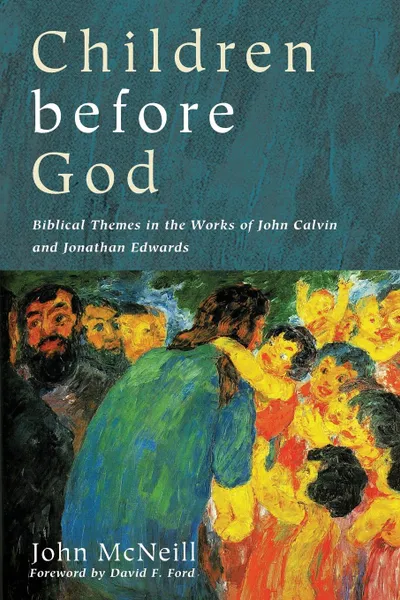Children before God 12+
📗 This work seeks to delineate a theological framework into which biblically informed imagery and language of children in relation to God can be placed. McNeill's aim is to offer a work of positive construction within the general Reformed tradition. The book shows that John Calvin has much to offer in this respect, but by examining the imagery and language of children in his works it is shown that Calvin is not adequately biblically informed in this area. McNeill argues that Jonathan Edwards provides a theological tool that enables a construal of children more in keeping with biblical language and imagery. The book then offers a general critique of current child development theories in which providential activity in child development is more or less ignored. By adopting Calvin's theological framework to understand children before God, it is argued that the integration of child development and divine providence becomes a distinct possibility.
This work should be of interest to those working in biblical, childhood, Calvin, and Edwards studies, as well as to the more general practitioner working with children in church and society.
""McNeill's study valuably explores the connections between the pressing concern for the education and care of children and our fundamental, sometimes unreflective, ideas about the nature of childhood as construed by Christian faith. Careful historical work on Calvin, Edwards, and the wider Reformed tradition here funds a better practical wisdom for Christian life with and for children in our own time.""
--Philip G. Ziegler, University of Aberdeen
""A fascinating set of insights into a vastly underdeveloped area of theological reflection. As well as offering an account of Calvin and Edwards on the theology of childhood, this book offers a constructive account which cannot but be helpful for the church today.""
--Tom Greggs, University of Aberdeen
""This is a thoughtful study on an important topic not often addressed by theologians. Dr. McNeill's historical researches into Calvin and Edwards highlight successes and failures in Christian ministry to children, casting new light on contemporary approaches to pastoral practice.""
-- George Newlands, The University of Glasgow
""Every adult was once a child. The lack of attention to childhood by Christian theology is, therefore, at the least a missed opportunity. In Children before God John McNeill uses the Bible to shed light on the way children have been represented, and often misrepresented, in one strand of Christian tradition. The result is an original and ultimately beautiful reappraisal not only of children in the order of salvation, but of the abiding significance of childhood to adult Christians. McNeill's writing is resourced by an astonishingly deep...
This work should be of interest to those working in biblical, childhood, Calvin, and Edwards studies, as well as to the more general practitioner working with children in church and society.
""McNeill's study valuably explores the connections between the pressing concern for the education and care of children and our fundamental, sometimes unreflective, ideas about the nature of childhood as construed by Christian faith. Careful historical work on Calvin, Edwards, and the wider Reformed tradition here funds a better practical wisdom for Christian life with and for children in our own time.""
--Philip G. Ziegler, University of Aberdeen
""A fascinating set of insights into a vastly underdeveloped area of theological reflection. As well as offering an account of Calvin and Edwards on the theology of childhood, this book offers a constructive account which cannot but be helpful for the church today.""
--Tom Greggs, University of Aberdeen
""This is a thoughtful study on an important topic not often addressed by theologians. Dr. McNeill's historical researches into Calvin and Edwards highlight successes and failures in Christian ministry to children, casting new light on contemporary approaches to pastoral practice.""
-- George Newlands, The University of Glasgow
""Every adult was once a child. The lack of attention to childhood by Christian theology is, therefore, at the least a missed opportunity. In Children before God John McNeill uses the Bible to shed light on the way children have been represented, and often misrepresented, in one strand of Christian tradition. The result is an original and ultimately beautiful reappraisal not only of children in the order of salvation, but of the abiding significance of childhood to adult Christians. McNeill's writing is resourced by an astonishingly deep...
Мнения
